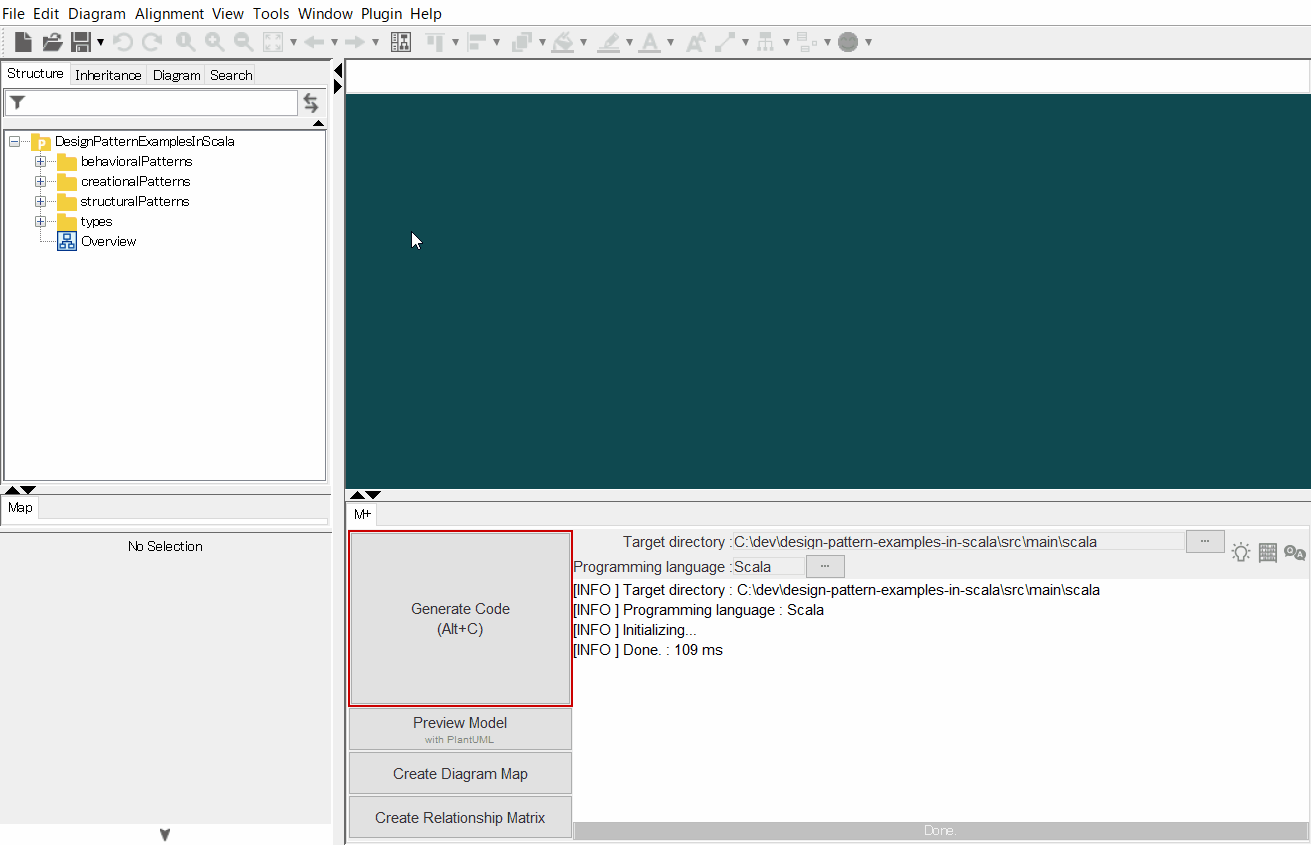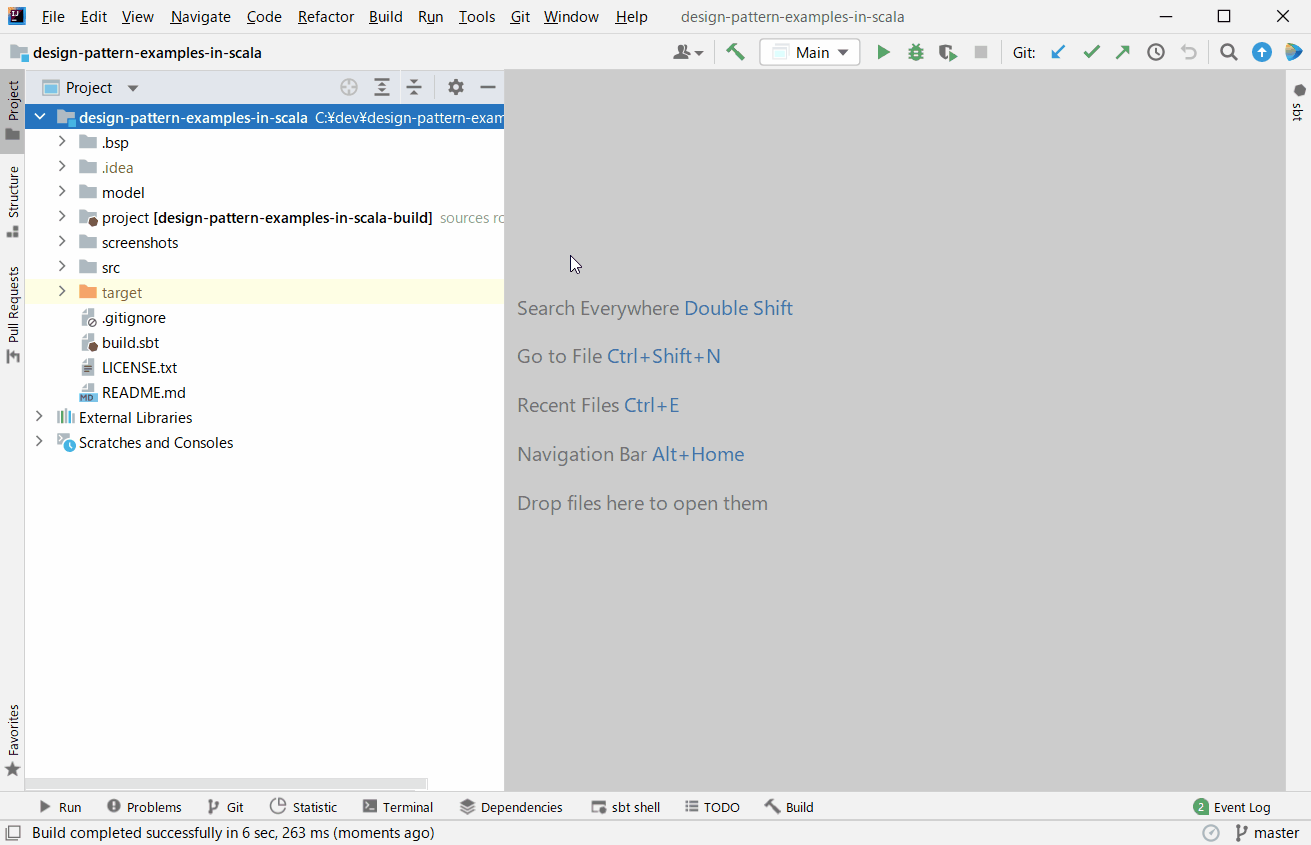Model and code examples of GoF Design Patterns for Scala.
This project is available for the following objectives:
- To understand GoF Design Pattern examples in Scala.
- To understand the mapping between UML model and Scala code.
- To try model-driven development (MDD) using Astah and m plus plug-in.
UML model example:
Scala code example:
// ˅
package structuralPatterns.composite
// ˄
class File(_name: String, _size: Int) extends FileSystemElement {
// ˅
// ˄
private val name: String = _name
private val size: Int = _size
override def getName(): String = {
// ˅
name
// ˄
}
override def getSize(): Int = {
// ˅
size
// ˄
}
// Print this element with the "upperPath".
override def print(upperPath: String): Unit = {
// ˅
println(f"$upperPath/$this")
// ˄
}
// ˅
// ˄
}
// ˅
// ˄UML Modeling Tool
- Download the modeling tool Astah UML/Professional ver.10.0.0 or higher, and install.
- Download m plus plug-in ver.3.0.0-preview or higher, and add it to Astah.
How to add plugins to Astah
Scala Development Environment
- Install Java SDK 11 or higher.
- Install IntelliJ. Then, install Scala and SBT plugin in IntelliJ.
Code Generation from UML
- Open the Astah file (model/DesignPatternExamplesInScala.asta).
- Select model elements on the model browser of Astah.
- Click the Generate Code button.

The generated code has User Code Area. The User Code Area is the area enclosed by "˅" and "˄". Handwritten code written in the User Code Area remains after a re-generation. View code example.
For detailed usage of the tools, please see Astah Manual and m plus plug-in tips.
Build and Run
- Open the project root directory (design-pattern-examples-in-scala) in IntelliJ.
- Open
Main.scalafor the pattern you want to run, and clickRunicon in the left gutter.
- Gamma, E. et al. Design Patterns: Elements of Reusable Object-Oriented Software, Addison-Wesley, 1994
- Hiroshi Yuki. Learning Design Patterns in Java [In Japanese Language], Softbank publishing, 2004
This project is licensed under the Creative Commons Zero (CC0) license. The model and code are completely free to use.
C++, C#, Crystal, Go, Java, JavaScript, Kotlin, Python, Ruby, Swift, TypeScript
